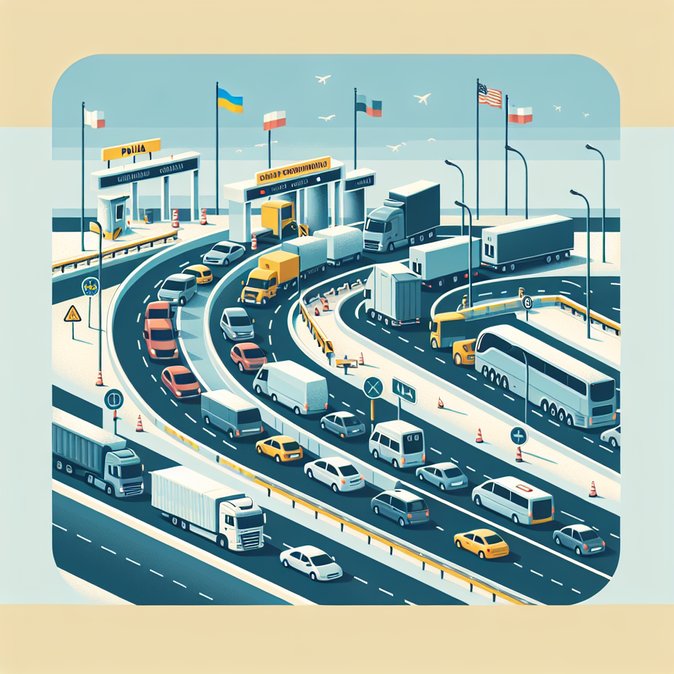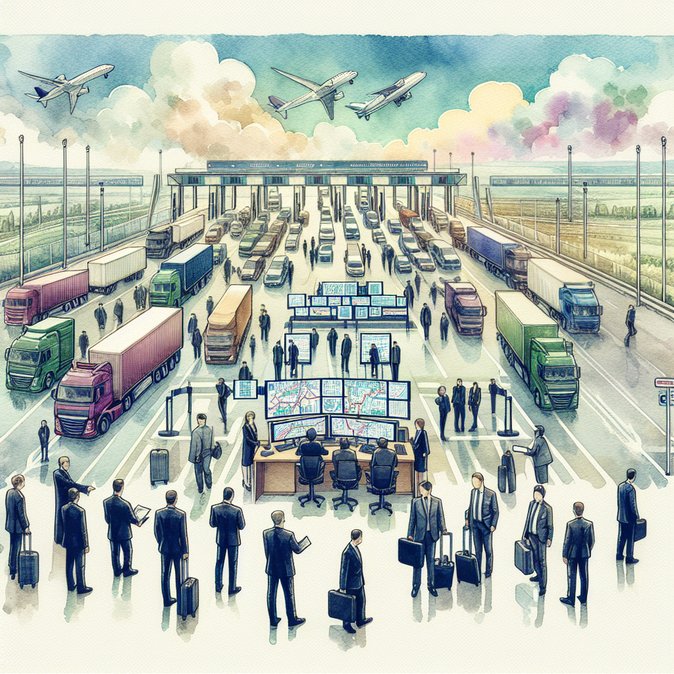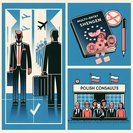
A routine Saturday afternoon on the Poland-Ukraine frontier turned into an unexpected test of patience when the Western Regional Directorate of Ukraine’s Border Guard reported a critical outage of the customs IT system at 14:05 on 8 November. The glitch forced officials on both sides of the frontier to halt all document processing, effectively closing every road crossing along the busy Lviv–Podkarpackie corridor.
Queues formed almost instantly. By mid-afternoon the State Border Guard listed backups of 10 cars each at Uhryniv, Hrushiv and Shehyni on the Ukrainian side, while Polish guards advised travellers to postpone departures or reroute through Slovakia. Commercial truckers—already coping with farmer protests earlier in the week—scrambled to secure alternative slots; logistics firms fear knock-on delays could ripple through just-in-time automotive and electronics supply chains that depend on the A4 motorway into Silesia.
![Customs database failure brings traffic to a stand-still at Ukraine-Poland land border]()
For multinational employers the shutdown is a reminder of the fragility of post-invasion transport links. Thousands of Ukrainian tech contractors commuting weekly to Kraków and Rzeszów technology parks were stranded, and coach operators cancelled evening services to Warsaw, offering re-booking at no charge. HR teams were urged to activate travel-disruption clauses in assignment policies and allow remote work until further notice.
Polish authorities confirmed that passport-control infrastructure itself remained intact; the problem lay in the shared customs database that records vehicle manifests and excise data. Technicians from both countries were dispatched, but officials could not guarantee a fix before midnight. The episode will add pressure on Warsaw to accelerate full rollout of the EU’s new Entry/Exit System—scheduled for later this year—which promises greater redundancy and cloud-based backups.
Until permanent safeguards arrive, employers are advised to: (1) maintain buffer stocks in Polish warehouses, (2) stagger business-traveller departures away from weekends when staffing is thinner, and (3) register mobile-phone numbers with the Border Guard’s SMS alert system. The incident highlights how even a single IT failure can paralyse cross-border mobility in Central Europe’s most important humanitarian and commercial corridor.
Queues formed almost instantly. By mid-afternoon the State Border Guard listed backups of 10 cars each at Uhryniv, Hrushiv and Shehyni on the Ukrainian side, while Polish guards advised travellers to postpone departures or reroute through Slovakia. Commercial truckers—already coping with farmer protests earlier in the week—scrambled to secure alternative slots; logistics firms fear knock-on delays could ripple through just-in-time automotive and electronics supply chains that depend on the A4 motorway into Silesia.

For multinational employers the shutdown is a reminder of the fragility of post-invasion transport links. Thousands of Ukrainian tech contractors commuting weekly to Kraków and Rzeszów technology parks were stranded, and coach operators cancelled evening services to Warsaw, offering re-booking at no charge. HR teams were urged to activate travel-disruption clauses in assignment policies and allow remote work until further notice.
Polish authorities confirmed that passport-control infrastructure itself remained intact; the problem lay in the shared customs database that records vehicle manifests and excise data. Technicians from both countries were dispatched, but officials could not guarantee a fix before midnight. The episode will add pressure on Warsaw to accelerate full rollout of the EU’s new Entry/Exit System—scheduled for later this year—which promises greater redundancy and cloud-based backups.
Until permanent safeguards arrive, employers are advised to: (1) maintain buffer stocks in Polish warehouses, (2) stagger business-traveller departures away from weekends when staffing is thinner, and (3) register mobile-phone numbers with the Border Guard’s SMS alert system. The incident highlights how even a single IT failure can paralyse cross-border mobility in Central Europe’s most important humanitarian and commercial corridor.










